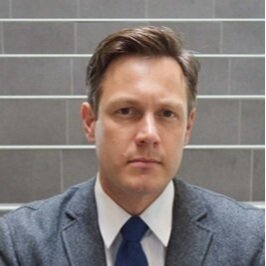We are pleased to announce the release of Defence Agile Procurement Insights and Analysis (DAPIA) final report produced through a collaborative initiative between The EXA Consulting Group and Carleton University’s Canadian Defence and Security Network (CDSN), funded by the Department of National Defence under the MINDS program. This comprehensive report presents the findings of the DAPIA project, which explored how Canada can more effectively acquire rapidly evolving technologies through agile procurement methods. Drawing on case studies, expert interviews, and cross-sector workshops, the report provides practical recommendations to advance agile procurement within Canada’s defence framework—while also addressing the inclusion of Indigenous and small businesses. With defence spending commitments rising, this report provides timely, actionable guidance to help decision-makers implement flexible, responsive, and outcome-driven procurement models to meet Canada’s strategic and operational needs.
Research suggests that narratives of discrimination within militaries can significantly influence public perceptions, trust, and material support for armed forces. Using Canada as a case study, we employ a survey experiment to gauge the effects of exposing respondents to narratives of discrimination against historically marginalized groups within the military, including First Nations, Métis, Inuit, Francophones, LGBTQ2S+, people of colour, and women. We examine how these narratives shape public trust in the military, support for defence spending, and perceptions of the Canadian Armed Forces (CAF) as an employer of choice. Our webinar delves into the findings, assessing the public’s responsiveness to these issues and their consequential impact on trust and material support for the Canadian military. Additionally, we discuss the implications for maintaining the trust necessary for the survival of militaries and propose strategies for fostering greater inclusivity and ethical conduct within armed forces.
Description
As political dynamics of civil-military relations determine decisions on procurement, personnel and operations, as well as how security is defined, this cross-cutting theme will study how evolving civil-military relations among parties, the government, the media, and the public, shape the development and implementation of defense policy. The Canadian government divides responsibility for defence procurement between DND/CAF, Public Services and Procurement Canada, and Innovation, Science and Economic Development for, respectively, elaborating the military’s requirements, administering the procurement process and contract award, and ensuring that Canadian industry benefits. The challenge is how to manage all of these agents who have their own priorities, perspectives, processes and biases.
Dr. Jean-Christophe Boucher
Assistant Professor at the School of Public Policy and at the department of political science at the University of Calgary
Dr. Philippe Lagassé
Associate Professor of International Affairs
William and Jeanie Barton Chair in International Affairs
Research
Our latest research has gone in two directions:
Surveys that assess public opinion, including survey experiments that have tested whether scandals about discrimination impact public attitudes towards the Canadian Armed Forces.
A workshop aimed at producing an edited volume examining the crises in Canadian civil-military relations: whether the military has had too much autonomy, whether it has abused that responsibility, and whether and why the civilians (including figuring out which civilians) have underplayed their role.
News
Workshopping Canadian Civil-Military Relations. June 13-14 2024
Recent Publications
Peacekeeping? its an Age Thing - A CDSN survey exploring Canadians’ attitude on foreign and defence policy issues revealed that opinions on Canadian peacekeeping tend to vary by age. This may affect Canada’s future foreign policy stance and decisions.
Canadian Knowledge and Attitudes About Defence and Security Issues - Nanos in collaboration with the CDSN conducted a survey of Canadians to gauge their knowledge, perceptions and attitudes towards defence and security issues. The publication dives into topics such as Canada’s place in the world, international threats to Canada, the role of the Canadian Armed Forces and military interventions, and Canadian Military and Society.
Notes from the Agile Procurement Workshop held on
19 September 2019Policy Paper: Toward Agile Procurement for National Defence: Matching the Pace of Technological Change





